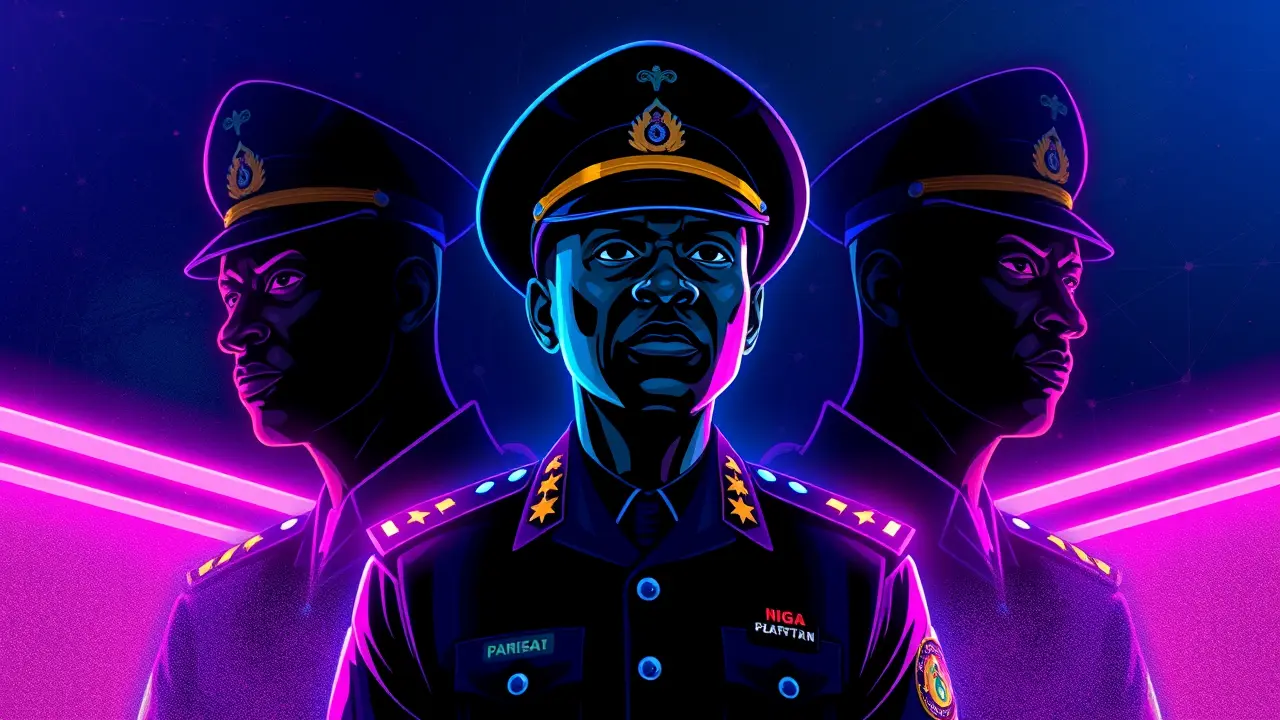
Politicsgovernments & cabinetsLeadership Transitions
Guinea's Coup Leader Enters Presidential Race.
RO
Robert Hayes
20 hours ago7 min read3 comments
In a stark reversal that echoes the grim precedents of military takeovers across the post-colonial world, Guinea's coup leader, General Mamadi Doumbouya, has formally entered the presidential race, shattering his solemn vow to restore civilian governance. This calculated move, announced amidst a climate of subdued public dissent and international hand-wringing, marks a definitive pivot from liberator to autocrat, a transformation as old as political power itself.When Doumbouya’s special forces deposed the increasingly authoritarian President Alpha Condé in September 2021, the rhetoric was one of national salvation; he stood before the nation, draped in the Guinean flag, and pledged to ‘refound the state,’ promising a transitional government that would shepherd the mineral-rich West African nation back to democratic elections and, crucially, not contest them. That promise now lies in tatters, a casualty of the seductive, often inescapable lure of absolute authority.The historical parallels are both instructive and disheartening. One need not look far back in the annals of African history to see this pattern repeated, from Gnassingbé Eyadéma in Togo to the late Idriss Déby in Chad, where military figures who seized power ‘temporarily’ invariably discovered a permanent calling.Doumbouya’s trajectory mirrors that of his regional contemporaries in Mali and Burkina Faso, though his swift abandonment of the transitional facade is notably brazen. The international response has thus far been a study in calibrated impotence.The Economic Community of West African States (ECOWAS), which initially imposed sanctions that were later lifted following a proposed 24-month transition timeline, now faces another profound test of its credibility. Its threats have often rung hollow, and Doumbouya’s gambit suggests a calculated bet that regional bodies and global powers like France and the United States, weary of instability and keen on uninterrupted access to Guinea’s vast bauxite reserves, will ultimately acquiesce to a new strongman.Analysts point to the internal dynamics of the National Committee for Rally and Development (CNRD), the junta Doumbouya leads, where consolidating power requires appeasing a military elite whose loyalty is often purchased with the promise of continued political influence and economic spoils. Stepping aside, in this volatile calculus, could be perceived as a sign of weakness, potentially inviting a counter-coup from within his own ranks.Furthermore, the systematic dismantling of potential opposition—through targeted arrests, restrictive laws on public assembly, and control over the media—has created a political vacuum where Doumbouya’s candidacy appears, for now, unassailable. The consequences for Guinea’s 13 million people are profound.This decision effectively extinguishes the fragile hope for a genuine democratic renewal that flickered after Condé’s ouster. It signals an indefinite extension of military rule, likely fostering greater political repression, economic uncertainty for the average citizen, and a deepening of the governance crises that precipitated the coup in the first place.The nation, which has never experienced a peaceful transfer of power since independence from France in 1958, seems condemned to repeat its history, trapped in a cycle where the cure for dictatorship becomes another form of the same disease. As one Conakry-based civil society leader, speaking on condition of anonymity for fear of reprisal, lamented, ‘We exchanged an old king for a new emperor.The palace is the same; only the face has changed. ’ The world watches, yet again, as a promise of liberty is subsumed by the ancient logic of power.
#Guinea
#coup leader
#presidential race
#broken promise
#civilian government
#featured
Stay Informed. Act Smarter.
Get weekly highlights, major headlines, and expert insights — then put your knowledge to work in our live prediction markets.
© 2025 Outpoll Service LTD. All rights reserved.